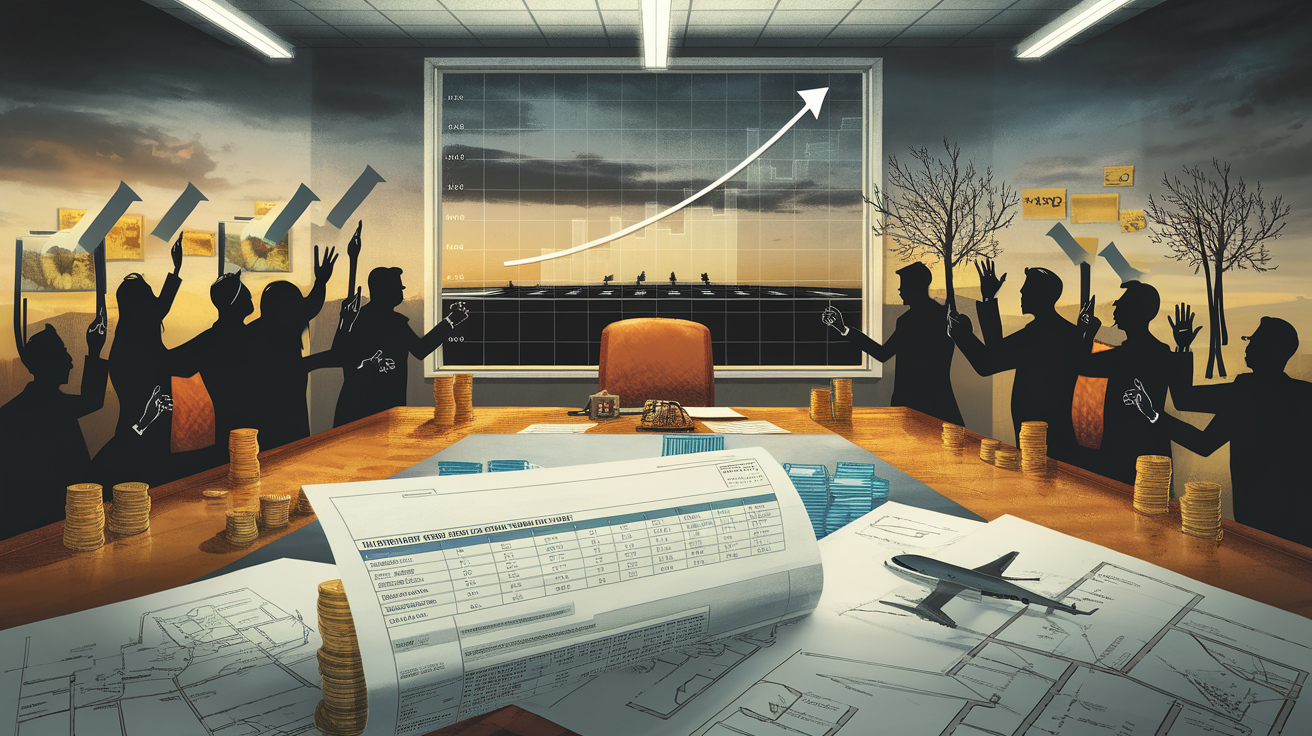"McKinney's Tax Tangle: Lower Rates, Higher Bills, and Sky-High Debate"
McKinney Shoutouts™
Archives
"McKinney's Tax Tangle: Lower Rates, Higher Bills, and Sky-High Debate"
SIGN UP FOR OUR NEWSLETTER
McKinney's Tax Twist Lower Rates, Higher Bills, and a Sky-High Debate |
As Homeowners Face Bigger Tax Hits, Is Airport Expansion a Bold Vision for Growth or a Risky Bet Against Voter Will? |

Susan Leigh Harmon
Sep 5, 2025
In the bustling city of McKinney, Texas, things are changing fast. This suburb north of Dallas has grown from a quiet town to a hotspot with over 200,000 residents.
Families love its parks, schools, and friendly vibe. But on September 3, 2025, the City Council made decisions that have folks talking, and not always happily.
They approved a new property tax rate of about 41.2 cents per $100 of a home's value, down a bit from last year's 41.6 cents. Sounds good, right? Not so fast. With home prices skyrocketing, many people might end up paying more taxes overall, even with the lower rate.
Take Sarah Thompson, a longtime McKinney homeowner. Her house value jumped 20% last year. "I thought a tax cut would help," she says, "but my bill could go up anyway." Stories like hers are common.
The city's budget is ballooning to $942 million, up from before. That's money for roads, police, and parks. But a big chunk, $15.9 million, goes to expanding the McKinney National Airport.
Leaders say it'll bring jobs, boost tourism, and help the economy soar. Planes could fly more routes, connecting McKinney to big cities.
Yet, not everyone's on board. Back in 2023, voters turned down a $200 million bond to fund the airport growth. They worried about noise, traffic, and harm to the environment.
Now, a federal lawsuit is challenging the project's environmental review, claiming it doesn't fully address risks like pollution or wildlife disruption.
Environmental groups, like those led by activist Mike Rivera, argue the expansion could damage local wetlands and air quality. "We're fighting for our community's health," Mike explains.
On the flip side, business owners like local shopkeeper Lisa Chen see potential. "More flights mean more customers," she says. City officials point to studies showing economic wins, backed by experts in urban planning.
The budget passed with support, showing trust in the plan's benefits. But critics question if leaders are ignoring the people. Why push ahead after voters said no? And with taxes feeling heavier due to rising home values, is this the right time for pricey projects?
This all boils down to a heated question that's dividing McKinney: When property taxes pinch harder despite a rate cut, should cities charge forward with controversial expansions like the airport to chase growth, or heed voter rejections and lawsuits to prioritize community concerns and environmental safeguards?
One camp sees it as smart investing for the future, creating jobs and opportunities. The other views it as tone-deaf, risking taxpayer money on something already voted down.
McKinney's story highlights the tug-of-war in growing cities everywhere. Based on reports from trusted sources like KERA News, it's clear the decisions affect real lives.
As the lawsuit unfolds and budgets roll out, residents will watch closely. Will the airport take off, or will community voices ground it? Only time will tell, but the debate is keeping everyone on their toes. |
